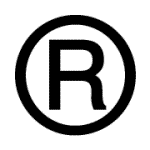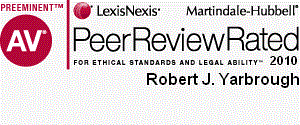Newsletter Issue 41 - July 2012
In this issue:
Patentable Subject Matter - Mayo v
Prometheus
Powerful ideas
Can a title be a registered trademark?
Patentable Subject Matter - The Issue That Will Not Die
The Issue That Will Not Die
Whether an invention is the sort that can be patented is determined by §101 of the patent statute. That section states:
Whoever invents or discovers any new and useful process, machine, manufacture, or composition of matter, or any new and useful improvement thereof, may obtain a patent therefor, subject to the conditions and requirements of this title.
The issue of patentable subject matter is not a problem for physical inventions in the mechanical or electrical arts, but can present thorny problems for less concrete inventions, such as processes in the pharmaceutical, software and financial fields.
The U.S. Supreme Court has interpreted §101 several times, most recently in Mayo Collaborative Services v Prometheus Laboratories, 132 S. Ct. 1289 (2012). The invention before the Court was a method of treating a particular disease by administering a particular drug, monitoring levels of breakdown products of the drug in the patient's blood, and adjusting the dosage to achieve a specified range of concentrations. The Court held that the invention was nothing more than an unpatentable 'natural law;' namely, the natural process occurring in the patient's body of breaking down the drug in a way that indicated the effectiveness of the drug. The other steps of the invention were not enough to convert this unpatentable 'natural law' into a patentable invention. In considering whether the other steps were sufficient, the Court found persuasive that the drug, the breakdown products and the tests were old and well known. The Court was concerned that patenting this or any other 'natural law' would preclude other researchers from utilizing the same law.
The Court specifically refused to adopt the PTO's argument that
whether an invention was old, obvious or vague should be considered
under other sections of the patent law and not under §101. The Court
flatly stated that those concepts are incorporated into §101.
The net result of Prometheus and other Supreme Court precedent is that at the margins patentable subject matter is a bit like pornography - the Supreme Court justices know it when they see it. This approach makes life unpredictable for the PTO, for the Federal Circuit Court, and particularly for inventors in the pharmaceutical, computer software and financial services industries. The dust from the Prometheus decision still has not settled and several cases are pending in the Federal Circuit that will apply the decision.
Ask Dr. Copyright
(Summer Reading Edition)
Dear Doc:
I'm going to the beach and I am tired of re-reading old spy novels. Know any exciting books about intellectual property law?
Signed,
Eccentric Beachbum
Dear EB,
Absolutely! The "Doc" just loves a good suspenseful mystery, and in the
Doc's opinion, there is none better than William Rosen's The Most Powerful
Idea in the World: A Story of Steam, Industry, and Invention. Who doesn't
love steam engines? This book seems, at first, to be a rather dry history
of the beginnings of the industrial revolution in England. Give it a
chance, though, because it quickly becomes a rather dry history of the
beginnings of the industrial revolution in France, England and a few
other places. By about page 40 though, it's a real page-turner. I won't
spoil it for you, but here's the clue: the most powerful idea in the world
is NOT the steam engine!
Rosen is an engaging historian, and his depiction of the epic battles and monumental forces that reshaped our world in the early 19th Century echo in today's world of globalization and disruptive shift. If, as they say, history does not repeat itself, but certainly rhymes, then Rosen's book should be required reading. If you, like the Doc, are fascinated by technology and business, as well as strong characters who shape the societies in which they live, you'll enjoy it. Trust the Doc.
A Book By Any Other Title May not be Registrable...
From time to time, we receive inquiries from authors about registering book titles as trademarks. Sounds like a good idea, but can it be done? The short answer is "no," trademark law does not permit registration of a work's title. But, as with many legal rules, there are exceptions.
The complete title of a work may be registered as a trademark if the work's title is used on at least two different creative works thereby establishing the title as a trademark for a series of works. Children's book titles are commonly registered as a series of works. For example, Two Cool Doods, The Little Green School, Monster Catchers, and many others. The trademark applicant must exercise care in providing evidence of a series. If only the format of the work has changed, such as publishing a written and audio version of the work, the applicant will not persuade the trademark examiner that the work is a series. Similarly, the title of an abridged or unabridged version of the work does not establish a series; nor does use of the title on posters, mugs, bags or t-shirts.
An author may also register a portion of a book title as a trademark
if he or she can establish that:
• the portion of the title to be registered must create a separate
commercial impression apart from the complete title;
• the title is used on a series of works; and
• the title is promoted or recognized as a mark for the series.
The Trademark Office states that the applicant has a heavy burden in establishing that the title is used in a series. The mere use of the same words in more than one book title is insufficient proof. Instead, the applicant must establish that the public perceives the title to be a mark for a series.
So, you can see that there are strategies for registering a book title as a trademark but the process is tricky. If you've been thinking about registering a book title, we can help determine the appropriate application strategy.

